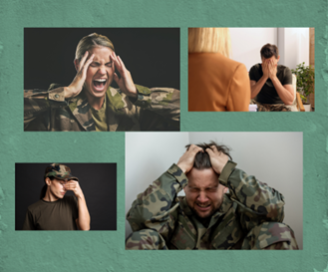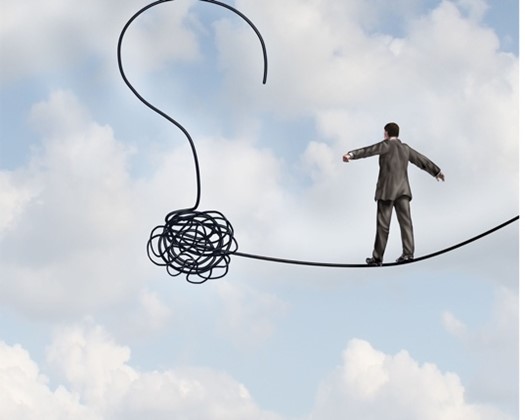Three ways to Resolve Shock and Enhance Vicarious Resilience
Three ways to Resolve Shock and Enhance Vicarious Resilience
![]() In the previous blog we discussed shock and secondary traumatic stress as it relates to first responders. We introduced the concept of shock as a primary physiological symptom of traumatic stress, and how many of us “self-medicate” our chronic stress with food and drink, as well as caffeine, drugs, and other substances and behaviors.
In the previous blog we discussed shock and secondary traumatic stress as it relates to first responders. We introduced the concept of shock as a primary physiological symptom of traumatic stress, and how many of us “self-medicate” our chronic stress with food and drink, as well as caffeine, drugs, and other substances and behaviors.
Vicarious Resilience
In this follow up installment, we want to focus on the solutions to the problems we identified. A relatively new concept is beginning to be researched: vicarious resilience, the positive side of close proximity to individuals who have been traumatized. While it is true that first responders are inundated with images and stories of terrible traumas, they also get to share in the heroic recoveries and triumph of the human spirit of those they work with to rescue, protect, or heal. And bearing witness to the enormous resilience of these survivors can be a source of inspiration and fulfillment to the trauma practitioner. In other words, first responders can be vicariously affected in positive ways.
We know some of the factors that support positive outcomes and resilience for those who face and survive trauma. This applies to traumatized people as well as to the first responders who have dedicated their lives to help them. Unconditionally supportive social networks are vitally important for trauma and shock recovery. It is especially useful when some of those supportive people are outside the survivor’s immediate family, and also outside the traumatized individual’s specific work environment.
Psychotherapeutic Interventions
Psychotherapeutic interventions are paramount to healing the rift in personal safety and trust caused by trauma. The therapy needs to focus on the strengths of the client or victim, fostering the client’s sense of personal control. And effective therapy will promote and develop a sense of personal authenticity in relationships with others and with oneself. Hypnotherapy is an especially helpful form of therapy for this because it allows access to any self-limiting beliefs held deep in the unconscious that may have been triggered by the recent traumatic event.
Several factors contribute to development of vicarious resilience in first responders as a counterbalance to the inevitable traumatic stress. One is the professional’s “core empathic capacities” (i.e., tolerance, endurance, capacity). We see these qualities in a police officer who comforts a crime victim, in a soldier on patrol in a foreign land who jokes with the children as he passes by, or in a therapist who rejoices in a client’s newfound assertiveness. Others are (McCann & Pearlman):
- a profound sense of meaning in their life derived from work with survivors;
- increased empathy and compassion for other peoples’ suffering and pain;
- increased knowledge and awareness of the socio-political context of violence;
- enhanced motivation for and commitment to engaging in social activism;
- enhanced self-esteem as a result of work with survivors;
- increased sense of hope that people can actually endure and overcome traumatic experiences and transform those experiences; and
- the development of a more realistic and less idealistic worldview
Developing a Self-Care Plan
Strategies to address or prevent vicarious or secondary trauma in one way or another involve developing a self-care plan. This is especially true for trauma professionals because so often these individuals focus their compassion solely on those they are dedicated to help, overlooking their own need for relief from the constant barrage of traumatic stress and the resulting chronic shock states that inevitably ensue.
This has been called “trauma stewardship”: empowering and promoting the well-being of trauma professionals. The principle of trauma stewardship is that both joy and pain are realities of life, and that suffering can be transformed into meaningful growth and healing when a quality of presence is cultivated and maintained even in the face of great suffering. The concept of trauma stewardship is based on the premise that the effects of exposure to trauma can be managed and encourages practitioners to take care of themselves through reflecting deeply on what led them to engage in trauma work, the impact it has on them, and the meaning of and lessons gained from the work. In short, it is a gift to accompany survivors on their path to healing from trauma. And we must value that gift by taking care of ourselves and cultivating our capacity to continue to serve those traumatized individuals who need our help. And doing so in a way that does not require an unbearable price in our own mental and physical health.
Heart-Centered Hypnotherapy will help prevent burnout for professionals who witness the trauma of others on a daily basis. In order to enhance positive trauma stewardship rather than becoming personally depleted, professionals must clear their own shock and trauma residue. Shock is very contagious, and a first responder who is susceptible will likely fall into vicarious traumatic stress. A first responder is immune to that contagion from traumatized people when he/she has cleared out any backlog of traumatic stress, and has established an ongoing self-care plan to dissipate shock and traumatic stress as it occurs on a daily basis.
Through hypnotherapy we can strengthen our own resilience by:
- Releasing and gaining stewardship over our own personal history of trauma
- Discovering the internal strengths we used as a child that helped us to survive trauma
- Recognizing and ameliorating our own shock states so that we can be clear and powerful witnesses for the shock states of the traumatized people we serve.
McCann, I. L., & Pearlman, L. A. (1990). Vicarious traumatization: A framework for understanding the psychological effects of working with victims. Journal of Traumatic Stress, 3(1), 131-149.








